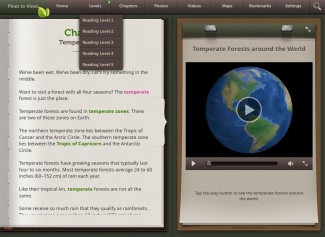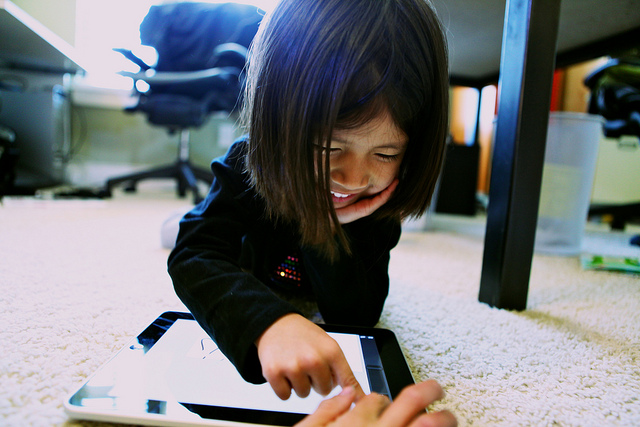Joei writes:
I’m homeschooling my two sons (ages 7 and 4) and started by using workbooks and abandoned it quickly because it was too frustrating for all of us. We’ve been using online programs instead but it seems to be good only at the start and then it gets boring. We started with Time4Learning and then quit after a few months. We’re now using Splash Math and IXL which seem better. Teach Your Monster to Read is great but is wearing out its novelty. Getepic is so far the greatest online resource that is never tiring for us and is such a joy to use. However, I’m the one reading to them all the time. I’d like to find a game that will challenge and motivate my kids to learn to read in a fun way — sort of like Teach Your Monster to Read but more creative and less redundant. When it comes to reading sentences in that game, I have to come in and help my boys. I would truly appreciate any advice.

Crack the Books interactive textbooks let students choose their reading level and look up terms.
Your question is compelling because you’re not only asking how to build your sons’ reading skills, you’re looking for a way to make the process enjoyable for them. Helping your children learn to read is one of the most important tasks you will undertake as their teacher. Helping them love to read is one of the greatest gifts you can give them as a parent. If your kids can learn to enjoy reading, they are far more likely to become critical thinkers and self-led learners.
We are in agreement that a program that is too advanced for them, which requires you to come and basically do their work, isn’t effective. However, as you already know, your involvement — moral support, guidance, leading reflections — is paramount to their success.
Out of the many tools we’ve reviewed at LW4K, my favorite are interactive electronic books. While some of these books may be a bit advanced for your four-year-old, your seven-year-old is likely to be able to enjoy them and learn from them as he practices his reading. The Crack the Books series, which includes the interactive Earth Science textbooks Seashores to Sea Floors and Pines to Vines, is a wonderful set of tools to engage a child in reading and get them interested in the world around them. Designed primarily for elementary school students, Crack the Books apps offer different levels of reading difficulty, allowing children in grades 1 through 8 to enjoy the texts without changing the nature of the core curriculum. There are many other publishers of interactive e-books that might also be helpful for you, such as Ocean House Media and Capstone Publishing.
| I asked our editor, Leah Watkins, for her suggestions. Here’s what she said:
Of course you know that kids will focus and stick with reading if it’s fun. You might try LeapFrog’s LeapReader, which has stories starring characters from Disney, Pixar, and Nickelodeon. The Sprout, PBS Kids, and Scholastic websites are also excellent resources, offering games and listen-and-read activities that feature books and TV shows like The Magic School Bus, Arthur, Dot and Caillou. But if you had success with Teach Your Monster to Read, I really think you should check out StoryBots, a multi-platform edutainment system with a focus on phonics and reading. Created for kids 3-8 years old, its apps, books, videos, and games have gotten so popular in recent months that it’s now a Netflix Original animated series. |
Another great tool for kids who are learning to read on their own is Amazon.com’s Whispersync. Whispersync is a service that allows a Kindle user to listen to an audio version of the book while reading along as the words are highlighted in the text. While I do not recommend Whispersync for beginning readers, it can be very helpful for children who already have basic reading skills. Not only can it help them gain reading fluency, it can build their vocabulary by introducing them to new words and helping them with pronunciation. By making reading a less frustrating experience, Whispersync can help kids learn to love books.
I have my parents to thank for instilling a love of reading and learning in me. I can think of very few pleasures greater than sitting down with a great book. I encourage you to continue to look for engaging tools and technologies that will help your kids love to read. Let us know what you find and what works.
Do you have a question about parenting in the digital age? Ask Dr. Kulman! Leave a comment below or come talk to us on Facebook!
Featured image: Flickr user Marcus Kwan





That’s nice blog. I like reading new here.